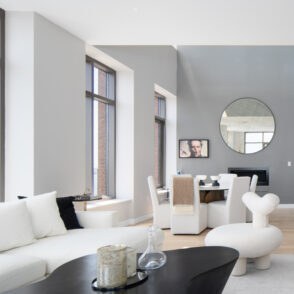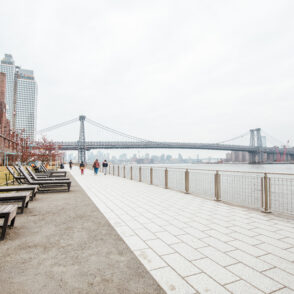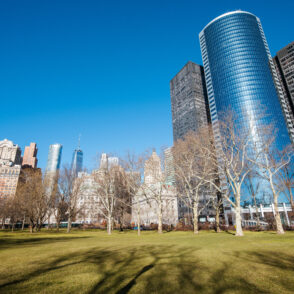New York City is an exciting place to live. While stimulation can be fun during the day, excitement is not a quality that you want when you’re trying to rest at night.
Noise and light pollution can make it difficult to sleep, creating a less than ideal sleeping environment. However, there are ways to reduce or eliminate these distractions so you can get a restful, restorative night of sleep.
Noise and Light Pollution in New York City
In New York City, there is no escape from light pollution. Artificial light is everywhere, from street lamps to signs, headlights, and even your neighbor’s window.
While light helps us see clearly at night and avoid accidents like stubbed toes, exposure to light can make getting to sleep difficult. Your circadian rhythm, which triggers your sleep and wake cycle, relies on illumination as a cue to tell your body when it’s night and day. If you’re exposed to bright light at night, your circadian rhythm can be thrown off, convinced that it’s daytime instead of night. This confusion can leave you feeling more alert than you should when you’d like to get to sleep.
Noise works the same way and can be jarring and distracting. New York City has no shortage of noise pollution and is one of the noisiest locations in the United States. While many New York City residents simply get used to background noise, some noises can be jarring and distracting, waking you up at night. And even if you feel conditioned to tune out the hum of New York City, your sleep quality may suffer.
Creating a Healthy Sleep Environment in New York City
♥ Choose your location wisely. Where you live can influence how much noise and light pollution you’ll face. More densely populated areas will have more noise and light, so living in the heart of the city will create a more difficult sleep environment than more quiet refuges, such as Staten Island or the Bronx.
♥ Block out light at night. Light permeates the city regardless of the time of day, so it’s important to block out light in your bedroom. Turn down the lights with a dimmer at night, or use small lamps instead of bright overhead lights. Additionally, it’s a good idea to use blackout curtains to block out light from the street that can make its way in through your window.
♥ Replace noise pollution with white noise. There is no escaping noise in New York City, but you’ll sleep better if you’re able to keep your bedroom environment quiet. Consider sleeping with earplugs, which can block out most noise. A fan can serve the dual purpose of keeping your bedroom cool and promoting airflow, while also providing soothing white noise. Or, use a white noise machine that can block out distracting noises.
♥ Make your bedroom comfortable. Although light and noise are important to block out at night, they aren’t the only components of a healthy sleep environment Your bedroom should be a relaxing, restorative sleep environment. Make sure you’re sleeping on a mattress that is appropriate for your needs. Check mattress reviews if you’re in the market for a new bed. Also, purchase bedding that is soft, comfortable, and breathable.
♥ Practice healthy sleep hygiene. Regardless of your sleep environment, healthy sleep habits are essential to a good night’s sleep. Maintain a regular sleep schedule with a consistent bedtime routine. Avoid sleep pitfalls, including late-night caffeine, screen time, and alcohol, which can all interfere with sleep.


